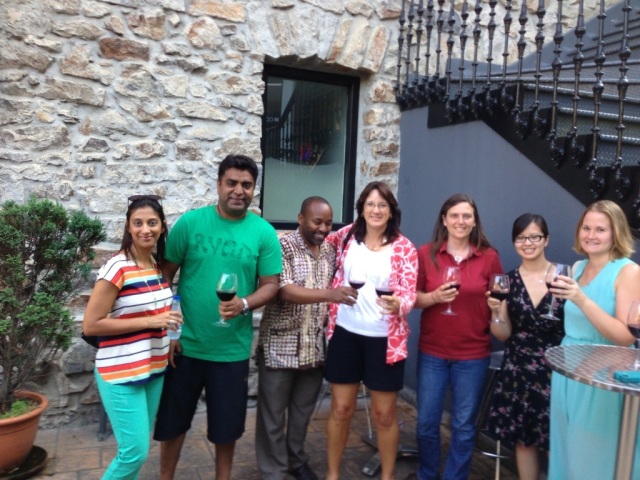When I was an undergraduate at the University of San Diego, a theology professor used an analogy to explain God’s existence which has stayed with me for the past ten years. Since then, I have used the analogy to explain God’s existence to my church youth group. Simply put, there is not a single, definitive piece of evidence that proves God’s existence, but rather numerous pieces that when combined together, present a strong argument, like a strong cable which consists of multiple wires. After experiencing Mondragon, listening to the different speakers on what makes Mondragon successful, and learning about the different cooperatives, I realized that this analogy can also be used to describe Mondragon in two ways. Firstly, instead of measuring success solely in monetary terms, Mondragon’s success can be expressed in a “bundle” of aspects: length of time, number of employees, social impact, the culture, sales, profits, number of cooperatives, etc. Secondly, the analogy illustrates how cooperation works: the worker-owners are grouped within the numerous cooperatives to create Mondragon Corporation, thus representing the strength of cooperation like the strength of a bridge cable. This analogy came to mind as I listened to the questions and comments from classmates as well as friends on how the cooperative model can be successful.
Focusing solely on one factor, such as financial success, ignores the multi-faceted nature of humans. I had begun realizing this in recent years; that income was not a measure of a person’s worth, and that positions or titles did not make one individual better than another. The Mondragon experience gave me concrete terms and examples of how success can be measured in other ways such as social impact, relationships, and adaptability. I intend to take share this perspective with my students so that they can understand that a person’s self-worth is more than their paycheck. I hope that, instead of chasing high paying jobs they hate, these young adults can find a career they love while also contributing to society. I’ve recently been revising clients’ resumes to transition them from high paying jobs, into new professions they are passionate about. If my students can figure out their dream job sooner rather than later, then I will be happy. As Father Arizmendiarrieta of Mondragon aptly wrote, “What is a human being? An imperfect being. A perfectible being. A being whose destiny is not to contemplate but to transform. To transform oneself, to transform all around us” (2000, p.33). Thus it is through teaching, that I have the opportunity to transform.

